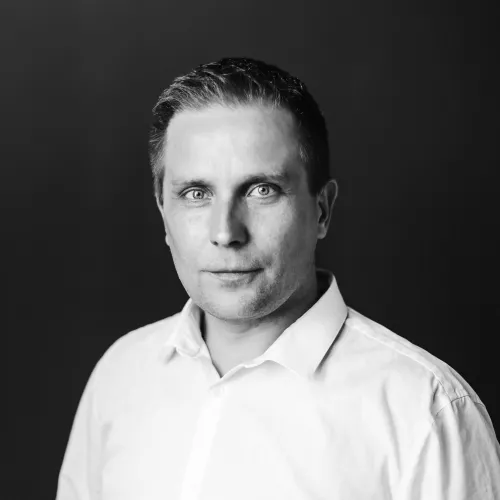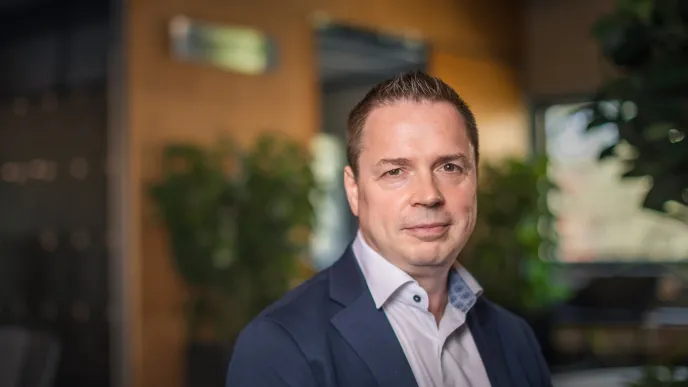The autumn means a fresh start to all schools and educational institutions – in more ways than one. For LUT University, the 2021 autumn semester is special because the university is launching a total of four new Bachelor's programmes in collaboration with a Chinese partner university. The language of instruction in the programmes is English. This also means that Bachelor's studies will start on the university's Lahti campus.
"At the end of 2019, we concluded a collaboration agreement with Hebei University of Technology, HEBUT. These new Bachelor's programmes are the outcome of this agreement. The planning of the programmes required close collaboration between the universities, and all the programmes have instructors from both LUT and HEBUT," says Janne Hokkanen, Strategy Director at LUT.
Hokkanen goes on to say that all instruction will take place at LUT, on either its Lahti or Lappeenranta campus, depending on the programme. Students will, nevertheless, receive degree certificates from both universities when they graduate from the three-year programme.
"All four programmes are so-called double-degree programmes. Moreover, students will have the opportunity for student exchange in HEBUT in Tianjin, China. I believe that students from Finland and outside of China will find this appealing," Hokkanen says.
All in all, nearly 200 students will start their studies in the new programmes: roughly 110 in Lahti and the rest in Lappeenranta. Most of the students are from China, but the programme participants represent a total of 25 nationalities.
The arrival of the Chinese students has gone smoothly because they had started their arrangements early on and the COVID-19 situation in their country is stable.
"Other international students may find it challenging to make it on time before studies start, especially because of the coronavirus situation. We will provide the possibility to take part in studies online; everyone will be able to start their studies at the same time," Janne Hokkanen explains.
Daily help from Student Services, student associations and guidance counsellors
LUT Universities – LUT University and the LAB University of Applied Sciences – share a Student Services unit that helps students of both institutions in their daily issues on campus. Moreover, new additions have been made to the study guidance staff on both campuses.
Johanna Lahti is the coordinator of the Energy Technology and Software and Systems Engineering programmes on the Lahti campus. She has personally received all of the international students of the programmes and made sure they got to their student apartment.
"The first of the students arrived already on the first day of August, and more have followed every week since. It has been useful to meet the students in person at this point because I will be working with them on their personal study plans later on," says Lahti.
For months already, Johanna Lahti has collaborated closely with different actors in Lahti city and with HEBUT staff, and she has assisted teachers in many practical matters before the arrival of the students. For example, housing for the students was arranged well in advance in cooperation with Lahden Talot.
Johanna Lahti has also introduced students to everyday life in Finland, such as grocery stores.
"With the first of the students, I spent a long time on the dairy aisle in the grocery store and tried to explain the differences between the products," Lahti laughs.
Johanna Lahti believes newcomers convey information on practical matters to each other. She now receives less inquiries on such issues than during the first weeks. Nevertheless, she will still need to answer many questions once studies shift into full gear. Because the programmes are completely new, there are no student tutors with personal experience of the studies.
"LUT's and LAB's student unions, the student associations of each degree programme, and the LAB students on the Lahti campus will help induct the new students into life on campus and in a new city. All of them helped us plan our freshman orientation, and we have also come up with fun ideas for student events for the academic year," Johanna Lahti grins.
Staff on the Lahti campus faces new challenges
The Bachelor's students are not the only ones facing new challenges – LUT's teachers in the new programmes are doing so too. So far, only Master's programmes have been arranged in Lahti, and not all Bachelor's level teachers have practical experience of the local campus.
"We are in the same boat as the students because practical arrangements on the Lahti campus are new to us all. We have gotten to know the campus, its facilities, technology and possibilities together," says Johanna Lahti, who started working in LUT's Student Services in February.
The new Bachelor's programmes open up new opportunities for the city of Lahti and its surrounding area. Unlike the majority of Master's students, Bachelor's students live in Lahti during their studies.
After graduating from their three-year Bachelor's programme, the students will be eligible for LUT's Master's programmes and may end up studying at LUT for five years altogether.
According to Janne Hokkanen, the university naturally wishes the campus cities and local businesses recognise and utilise the skill pool and potential of the international degree programmes.
"LUT's degree programmes have a long history of corporate collaboration in student assignments and final theses. Businesses can absolutely profit from collaboration in Bachelor's studies. The skills of these new students also include the specialisation areas of our partner university, the Chinese language and knowledge of the Chinese corporate culture," Hokkanen points out.
Hokkanen is aware of collaboration negotiations with Finnish businesses in both Lahti and Tianjin, China, which is promising for future graduates of the programmes.
"A few years from now, we will have hundreds of internationally oriented technology experts whose education connects them to Lahti. I hope this potential will be fostered from the very beginning," Hokkanen concludes.

Janne Hokkanen




